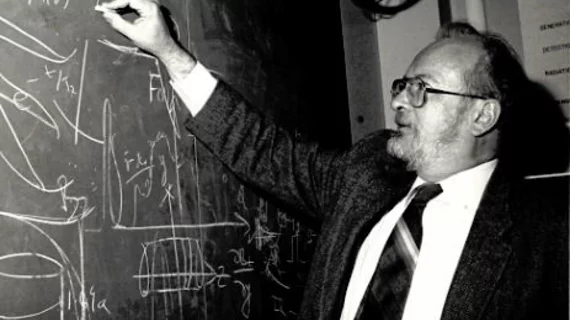Lauterbur, 'Father of the MRI,’ honored by New York university
Stony Brook University in New York will display a plaque posthumously honoring Paul Lauterbur, MD, whose work led to the development of the MRI, in its new engineering building. The institution will also name a campus street after the late chemist, according to a release from the university.
The Long Island section of the Institute of Electrical Engineers honored Lauterbur with the plaque that was unveiled Wednesday, Sept. 5, at the soon-to-be opened Stony Brook Medical and Research and Translation (MART) building. The event will mark 47 years since he had a “eureka” moment while eating a hamburger at a Pittsburgh restaurant, which ultimately led to the development of modern MRI.
“He ran across the street to get a notebook, and he wrote all of his ideas down and at that point he actually know it could become something big,” his daughter Elise Lauterbur said to WSHU public radio. “So he had a friend and collaborator sign it to prove the day and location of this hamburger joint.”
The campus road named after the former Stony Brook chemist—Lauterbur Drive— will lead to the MART building.
Lauterbur, who died in 2007 after suffering from kidney disease, received a Nobel Prize for Medicine in 2003 for his work on the MRI.
“Quite simply, the MRI is one of the most important medical discoveries of the 20th century,” said Samuel L. Stanley Jr, MD, and president of Stony Brook University, in the release. “Few people stop to consider how MRI technology came into existence. But at Stony Brook, we know the story very well. Millions of lives have been saved thanks to this groundbreaking technology. Lauterbur’s transformative work truly changed the course of modern medicine and trajectory of Stony Brook University.”

